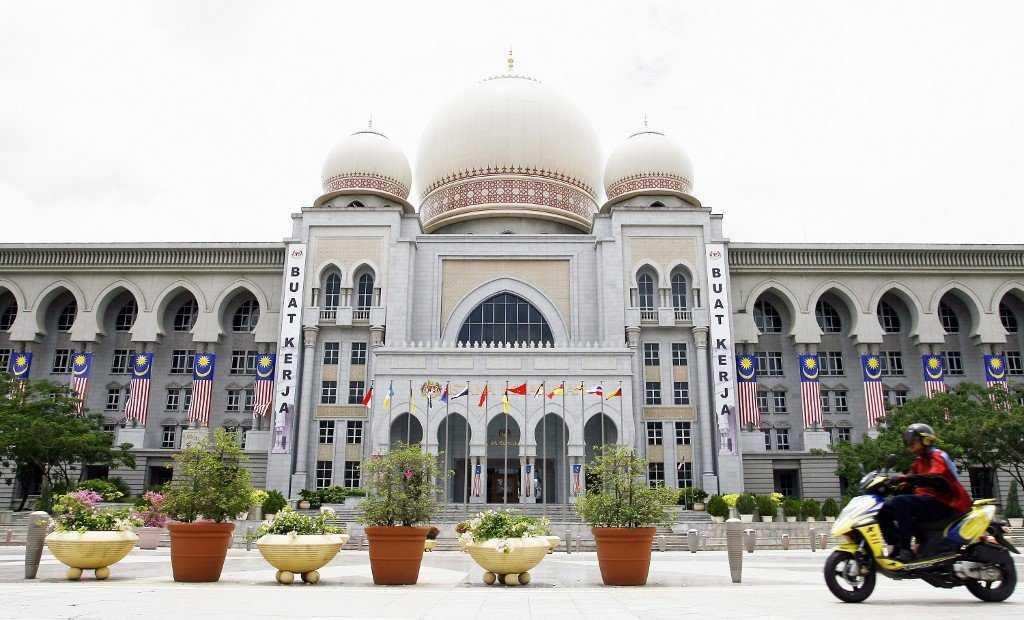Lawyer urges immediate response to rulers' call on PM's appointment of judges
Haniff Khatri Abdulla says the suggestion will remain only an idea if action is not taken to amend the existing laws.
Just In
A senior lawyer has welcomed the proposal by the Malay rulers for the prime minister to steer clear of the appointment of judges, saying the government should act on it instead of allowing it to remain only a suggestion.
Haniff Khatri Abdulla said that a mature government should provide an immediate response to the call, especially given Prime Minister Anwar Ibrahim's pledge to take into account the views of all parties.
"As he is a reformist, he too wants to restore the country to what it once was.
"If this is what was announced, then this positive and comprehensive proposal coming from the head of the country as well as the states should be well received by whoever becomes the prime minister, what more Anwar Ibrahim," he told MalaysiaNow.
On Nov 30, the Conference of Rulers suggested the removal of the prime minister's power to appoint five representatives to the nine-member Judicial Appointments Commission (JAC), the body which proposes candidates to be made judges in the superior courts.
Presently, four of the nine JAC members are made up of senior judges, while the remaining five are appointees of the prime minister.
Haniff said the rulers' proposal was on the mark, given the history of Malaysian judicial appointments from the 80s to the early 2000s which, under the constitution, allows the prime minister to appoint individuals "according to his pleasure".
At that point, he said, a committee was established whereby the prime minister's authority to advise the Agong on the appointment of judges was subject to the JAC's recommendations.
JAC itself was set up in 2009 to ensure an unbiased selection of judges for the consideration of the prime minister.
"So the question is whether the commission was established to determine a reduction in the prime minister's chances of interfering in matters of judicial independence," Haniff added.
"But how can this be properly implemented if the prime minister is also the one who recommends five of the commission's members?"
This, he said, was why the Conference of Rulers had made the suggestion.
"It doesn't have anything to do with Anwar, Muhyiddin Yassin, Dr Mahathir Mohamad, or anyone else for that matter."
Restoring public perception
Haniff said the rulers' proposal to the government newly formed by Anwar appeared in order to restore the interests of the country and the well-being of the people.
In particular, he said, it could eradicate the perception that the prime minister can interfere in the judiciary.
"I don't really agree with this because it is not easy for the prime minister to do so even if he is the one who suggests the appointment of judges," he said.
"It's in fact quite difficult for him to interfere. But the public perception is as such. How do we change this? As long as this perception is not addressed, any confidence in the government would be flawed. That is why this recommendation was made."
But he said the rulers' suggestion would remain only an idea if action is not taken to amend the existing laws.
"Who should replace the prime minister to make these appointments?" he added. "That is a matter for research and study, so that no loopholes remain."
For starters, he said, a neutral committee could be formed comprising former judges and lawyers, executors at the Attorney-General's Chambers, and respected legal practitioners to discuss what kind of amendments can be made.
"This all needs to be carefully studied," he said. "Don't try and patch up a hole with a plaster – when floods come, the plaster floats away and things become worse."
Subscribe to our newsletter
To be updated with all the latest news and analyses daily.
Most Read
No articles found.
